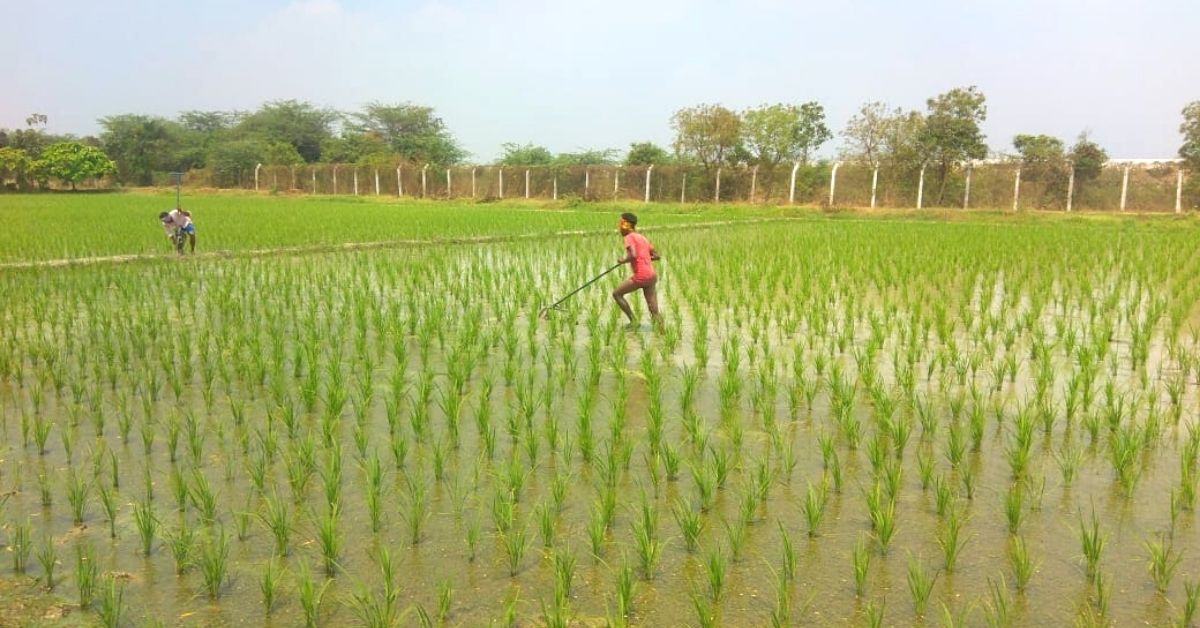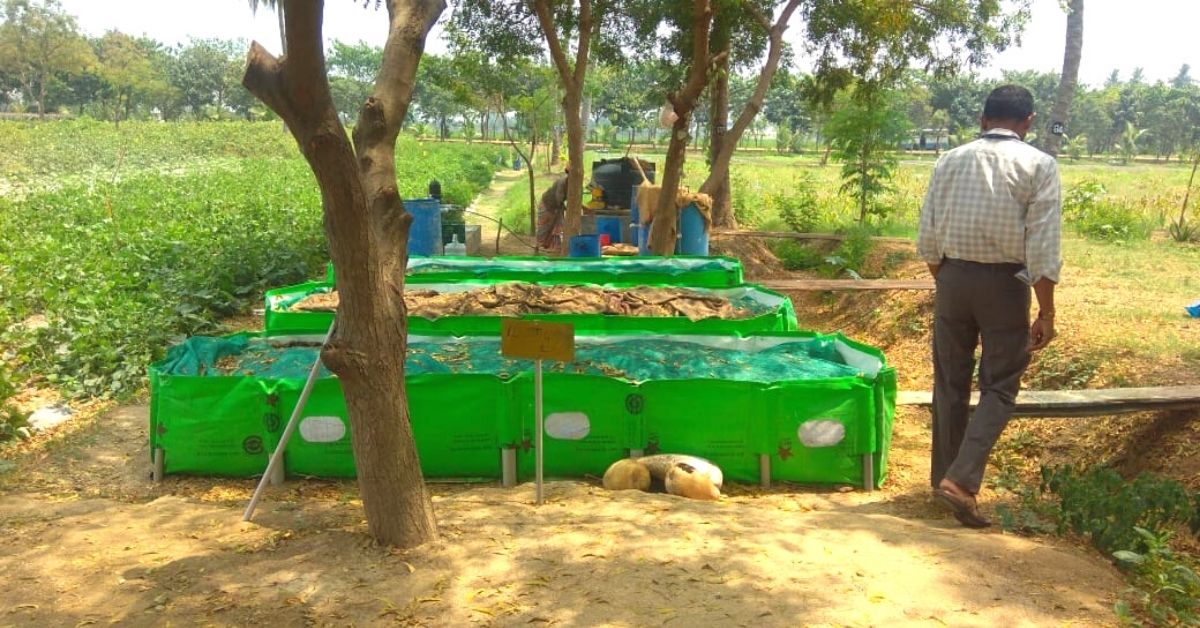After living in Canada for 14 years, S Jayalakshmi returned to Chennai in 1992. However, she found herself in a conundrum — it was hard to find chemical-free vegetables for her daughter in the market, something which she had not struggled with back in Canada.
“I searched across many local markets, but most vegetables came laced with toxins. My daughter suffered from allergies. The best I could do was mix and match vegetables from the markets and some from natural farmers on the outskirts of the city,” she tells The Better India.
Jayalakshmi received help from her cousin, who, on noticing the ordeal his sister was in, offered a 5-acre patch from his 10-acre land to her for organic farming. However, Jayalakshmi was facing many issues, as her husband suffered from multiple health issues. As debts kept piling, Jayalakshmi eventually eventually plunged into losses.
Finding a helping hand

“My cousin offered me the land, but I did not know much about farming. With minimal know-how, I grew paddy, greens, and drumsticks. However, I could not yield success. Meanwhile, my husband suffered from a heart attack, fell into a coma, and underwent several surgeries. After he recovered, he decided to move back to Canada, both for health reasons as well as to find a better source of income. I stayed back in India with my daughter,” says the 54-year-old.
As she mustered the courage to go on, Jayalakshmi also suffered after people cheated her financially. “I could not repay my loans and eventually stopped farming,” she recalls.
However, in 2002, a ray of hope arrived in the form of Dr Shanmuga Sundaram, an orthodontist from Ramakrishna Ashrama Mission School. “He introduced me to the concept of Zero Budget Natural Farming (ZBNF) through a workshop held in the city. He offered me 3 acres from his 30-acre land so I could give farming another try,” she says.
Jayalakshmi started by growing paddy again, and slowly extended her farming area to 10 acres and began growing herbal plants, green leafy vegetables such as spinach, fenugreek and others, and drumsticks, which are herbs commonly found in South Indian cuisine. She also grew fruit varieties such as mango, guava and chikoo, also known as sapodilla.
While she could grow and harvest all the vegetables to the best of her abilities and skills, there was still a gap to fill. Jayalakshmi struggled to take her fresh, naturally grown produce to the urban market. “I felt confident as a farmer but had no marketing skills and did not know how to approach customers,” she says.
To help her with the issue, Dr Shanmuga introduced her to Arulpriya Senthil Kumar, a resident of Chennai working on various aspects of sustainability.
Uniting for a common goal
Arulpriya quit her corporate job due to long working and travel hours. “I could hardly find time to spend with my children. I decided to work from home, where I began observing that my children ate a lot of fruits and vegetables, and the waste generated was substantial. I thought there could be a better way to treat the organic waste rather than throwing it in the bin,” she says.
She asked some of her friends and learned about composting, and after some research, began practising it, alongside creating awareness on the topic.

Arulpriya soon tapped into almost 300 apartments in the city, conducting free workshops on composting and treating organic waste. “I also motivated people to switch to alternative products to plastic. I approached the temple management and residents, convincing them to give up single-use plastic and adopt cutlery made from bamboo and other eco-friendly material like bagasse,” she says.
During such drives of propagating an environment-friendly lifestyle, she met Jayalakshmi and learned about her struggles.
So they both shook hands to start Namma Boomi, which offers eco-friendly lifestyle products and doubles up as a platform that offers naturally grown fresh farm produce.
With Arulpriya’s support, Jayalakshmi started selling chemical-free vegetables to hundreds of urban dwellers in residential areas. “We have been selling vegetables door-to-door since 2010,” Jayalakshmi says.
For the next seven years, Jayalakshmi reached out to urban customers as Arulpriya helped her earn better income. At present, Jayalakshmi sells vegetables under Namma Boomi to four routes and 70 families on each. She plans to expand and reach out to two other routes in the city and spread the message of chemical-free food.
“Over the past few years, I have travelled to other parts of the country including Uttarakhand and Kashmir to meet traditional farmers and understand their practices. My quest for good food and learning new practices continues till date,” she adds.
‘Farming is not a easy job’
Through years of setbacks and learnings, Jayalakshmi says that soil does not, in fact, need chemicals to grow food. “Nature has equipped soil with all the necessary nutrition for agriculture. There is no need to add artificial chemicals to increase production,” she says.

She adds that customers indirectly influence farmers and contribute to supporting the use of chemical fertilisers. “The customers often expect fruits to be big, the vegetables to have a certain shape, size and colour. The shine on vegetables can only come from hybrid varieties or the use of chemical fertilisers. Naturally grown farm produce does not always look attractive, but probably holds more nutritional value,” she says.
Jayalakshmi says that she is working on dual ends to create awareness among farmers and encourage customers to move towards a chemical-free lifestyle. “I have cultivated seeds of 75 native paddy varieties and ask farmers to grow them for conservation,” she says.
“Farming is not easy and demands hard work, but it rewards with satisfaction. I own my business and operate at my will, which brings me happiness in a true sense. My success in agriculture would not have been made possible without the support I received,” she says.
Jayalakshmi says that, like her, farmers need the support and encouragement of those with means in order to sustain and progress. “Many people have the potential to invest money and support needy farmers like me. They should come forward and do the needful,” she adds.
To contact Namma Boomi, click here.
Edited by Divya Sethu
No comments:
Post a Comment